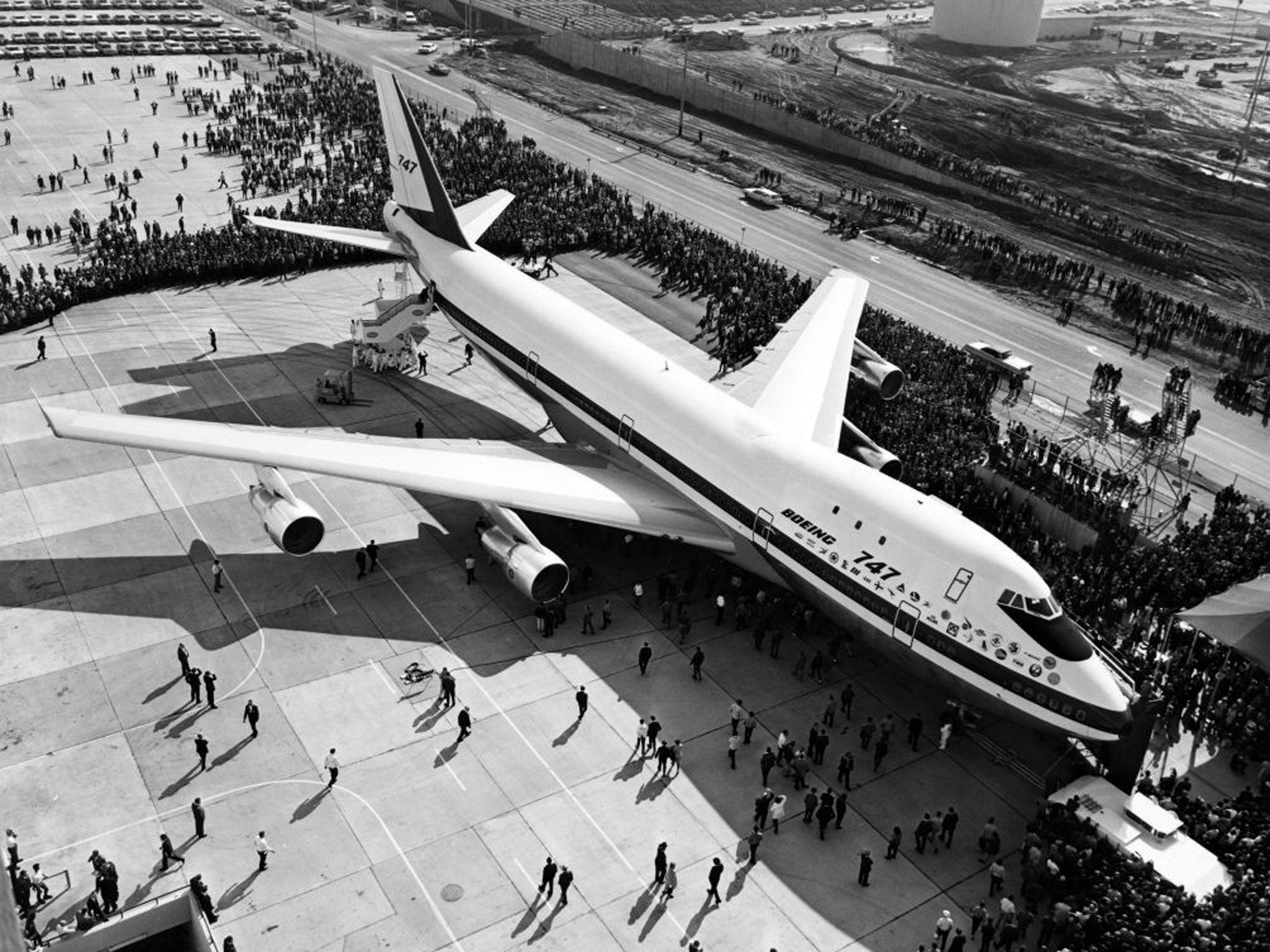BA says farewell to the jumbo as the plane with the hump looks set to be heading for the dump
The ageing and fuel-thirsty Boeing 747 is no longer an economic option, says travel correspondent Simon Calder

Your support helps us to tell the story
From reproductive rights to climate change to Big Tech, The Independent is on the ground when the story is developing. Whether it's investigating the financials of Elon Musk's pro-Trump PAC or producing our latest documentary, 'The A Word', which shines a light on the American women fighting for reproductive rights, we know how important it is to parse out the facts from the messaging.
At such a critical moment in US history, we need reporters on the ground. Your donation allows us to keep sending journalists to speak to both sides of the story.
The Independent is trusted by Americans across the entire political spectrum. And unlike many other quality news outlets, we choose not to lock Americans out of our reporting and analysis with paywalls. We believe quality journalism should be available to everyone, paid for by those who can afford it.
Your support makes all the difference.It has transported presidents, monarchs and refugees – and provided a piggy-back for the Space Shuttle.
But now the plane with a hump could be heading for the dump.
British Airways, the world’s leading operator of the Boeing 747, this week announced plans to start replacing its jumbo jets with smaller but much more efficient 787 jets.
The 787 “Dreamliner” is currently grounded because of safety concerns, but Willie Walsh, chief executive of BA’s holding company, IAG, said he was confident of its long-term prospects: “The aircraft offers a step change in fuel-burn efficiency versus our existing aircraft”. His counterpart at Cathay Pacific, John Slosar, has already made plans to retire the jumbo by next year, saying: “They are simply not economical to operate in these times of soaring fuel prices”.
The Boeing 747 was the first wide-bodied passenger aircraft. When it entered service in January 1970, it cut the cost of flying dramatically and opened up the world to middle-class travellers. Until the “jumbo age” began, long-haul air travel was the preserve of the wealthy – it would take months of work at the average wage to earn enough to fly the Atlantic. But once the 747 started flying, there were more than twice as many seats to fill on each flight. The only way to fill them was by cutting prices.
BOAC, the predecessor to British Airways, recruited Tony Blackburn to advertise unprecedented low fares of £103 (now around £1,250) from London Heathrow to New York JFK. Today, the same journey aboard a British Airways 747 costs as little as £428, of which £100 is UK and US government taxes.
Flying passengers on an old and thirsty aircraft is an expensive business, which explains BA’s plans to retire its fleet of 57 jumbo jets. Some are being replaced by the Boeing 777-300, which can almost match the 747’s capacity. But the airline has indicated that the 787 aircraft ordered this week will replace the jumbo on a one-for-one basis – significantly shrinking passenger capacity.
The aviation consultant, Peter Woodrow, described the decision as “a surprising choice” given that BA operates from the most constrained airport in the world. In his Air ‘N There blog he wrote: “The order is not a cause for celebration by those who want to fly BA in the future. The opponents of new Heathrow runways might also raise gleeful eyebrows and claim that the capacity of the two existing ones is not being exploited to the full.”
Heathrow was the destination of the maiden flight of the 747 in 1970, by Pan Am from New York JFK. Since then the jumbo jet has enjoyed a remarkable career – and remains the backbone of the Virgin Atlantic and British Airways fleets.
After Concorde was grounded a decade ago, the 747 became the fastest jet in passenger service, with a top speed of 614mph. BA’s evening jumbo from Heathrow to Hong Kong beats Virgin’s Airbus by 35 minutes. L
Passengers in a hurry may be glad to know that aircraft with the familiar “hump” are still being made – in the shape of the 747-8, for which Lufthansa is the launch customer. It is 18 feet longer than earlier versions, with much-improved fuel efficiency.
Every aircraft in the British Airways 747 fleet was delivered in the last century, and the oldest 747 in BA service was built in 1989. The second-hand value of old jumbos is sinking. The aircraft valuer Ascend Worldwide reported a slump in prices at the start of this year, and described values as “beginning to hurt”. There is a market in the developing world for planes with a few million miles on the clock, but the high cost of maintenance as well as fuel could deter potential buyers. Many of the aircraft are likely to be scrapped.
The prototype for a more radical option is to be found in a corner of Stockholm’s Arlanda airport where a former Pan Am jumbo has been converted into a hotel.
Join our commenting forum
Join thought-provoking conversations, follow other Independent readers and see their replies
Comments